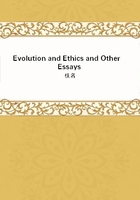
第55章
That is to say, about every hundred seconds, or so, a new claimant to a share in the common stock or maintenance presents him or herself among us. At the present time, the produce of the soil does not suffice to feed half its population. The other moiety has to be supplied with food which must be bought from the people of food-producing countries. That is to say, we have to offer them the things which they want in exchange for the things we want. And the things they want and which we can produce better than they can are mainly manufactures--industrial products.
These numbers are only approximately accurate. In 1881, our population amounted to 35,241,482, exceeding the number in 1871 by 3,396,103. The average annual increase in the decennial.
1871--1881 is therefore 339,610. The number of minutes in a calendar year is 525,600.
The insolent reproach of the first Napoleon had a very solid foundation. We not only are, but, under penalty of starvation, we are bound to be, a nation of shopkeepers. But other nations also lie under the same necessity of keeping shop, and some of them deal in the same goods as ourselves. Our customers naturally seek to get the most and the best in exchange for their produce. If our goods are inferior to those of our competitors, there is no ground, compatible with the sanity of the buyers, which can be alleged, why they should not prefer the latter. And, if that result should ever take place on a large and general scale, five or six millions of us would soon have nothing to eat. We know what the cotton famine was; and we can therefore form some notion of what a dearth of customers would be.
Judged by an ethical standard, nothing can be less satisfactory than the position in which we find ourselves. In a real, though incomplete, degree we have attained the condition of peace which is the main object of social organization; and, for argument's sake, it may be assumed that we desire nothing but that which is in itself innocent and praiseworthy--namely, the enjoyment of the fruits of honest industry. And lo! in spite of ourselves, we are in reality engaged in an internecine struggle for existence with our presumably no less peaceful and well-meaning neighbours. We seek peace and we do not ensue it. The moral nature in us asks for no more than is compatible with the general good; the non-moral nature proclaims and acts upon that fine old Scottish family motto, "Thou shalt starve ere I want."
Let us be under no illusions, then. So long as unlimited multiplication goes on, no social organization which has ever been devised, or is likely to be devised, no fiddle-faddling with the distribution of wealth, will deliver society from the tendency to be destroyed by the reproduction within itself, in its intensest form, of that struggle for existence the limitation of which is the object of society. And however shocking to the moral sense this eternal competition of man against man and of nation against nation may be; however revolting may be the accumulation of misery at the negative pole of society, in contrast with that of monstrous wealth at the positive pole;this state of things must abide, and grow continually worse, so long as Istar holds her way unchecked. It is the true riddle of the Sphinx; and every nation which does not solve it will sooner or later be devoured by the monster itself has generated.
The practical and pressing question for us, just now, seems to me to be how to gain time. "Time brings counsel," as the Teutonic proverb has it; and wiser folk among our posterity may see their way out of that which at present looks like an impasse.
It would be folly to entertain any ill-feeling towards those neighbours and rivals who, like ourselves, are slaves of Istar; but, if somebody is to be starved, the modern world has no Oracle of Delphi to which the nations can appeal for an indication of the victim. It is open to us to try our fortune; and, if we avoid impending fate, there will be a certain ground for believing that we are the right people to escape. Securus judicat orbis.
[It is hard to say whether the increase of the unemployed poor, or that of the unemployed rich, is the greater social evil. -- 1894]
To this end, it is well to look into the necessary condition of our salvation by works. They are two, one plain to all the world and hardly needing insistence; the other seemingly not so plain, since too often it has been theoretically and practically left out of sight. The obvious condition is that our produce shall be better than that of others. There is only one reason why our goods should be preferred to those of our rivals--our customers must find them better at the price.
That means that we must use more knowledge, skill, and industry in producing them, without a proportionate increase in the cost of production; and, as the price of labour constitutes a large element in that cost, the rate of wages must be restricted within certain limits.
It is perfectly true that cheap production and cheap labour are by no means synonymous; but it is also true that wages cannot increase beyond a certain proportion without destroying cheapness. Cheapness, then, with, as part and parcel of cheapness, a moderate price of labour, is essential to our success as competitors in the markets of the world.